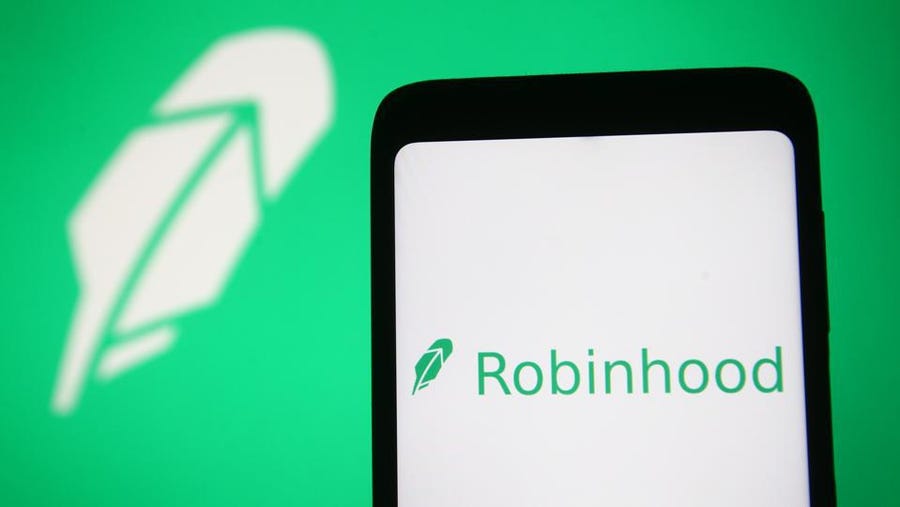The
trading experience on Robinhood’s web and mobile platforms is fast, simple, and
streamlined. For new investors, Robinhood has the functionality necessary to
trade, but more experienced investors will find familiar tools missing.
Robinhood has basic watch lists, stock quotes with charts and analyst ratings,
recent news, streaming Bloomberg TV, all alongside a simple trade entry
process. What you see is what you get with Robinhood, as there are no
customizations on the web or mobile platform. You can’t set default order
sizes, time periods on charts, or anything else.
Mobile
Trade Experience
Robinhood
is a mobile-first brokerage aimed at investors who want a simple trading app
without the bells and whistles. The broker doesn’t offer the same in-depth
tools that larger, traditional brokers do. You don’t have the ability to trade
directly from the chart, the platform does not support conditional orders, and
you can’t enter multiple orders simultaneously or stage orders for later entry.
You can, however, use trailing stops and stop limit orders.
Robinhood’s quote information streams in real time, and you can stream
real-time quotes on multiple devices simultaneously. Robinhood recently added a
feature called “Recurring Investments”. This feature allows you to schedule
automatic investments on a recurring basis for thousands of stocks and ETFs,
potentially helping you grow your investments for the future.
Range
of Offerings
Robinhood’s
range of offerings is extremely limited in that it only offers stocks, ETFs,
options, and cryptocurrency trading. Robinhood doesn’t support mutual funds or
fixed income products and you can’t trade commodities, forex, or futures. If
you choose Robinhood as your broker, you can invest in:
- Stocks, long only. No short
selling.
- Stocks worth over $1.00 per
share with a market capitalization over $25,000,000 are eligible for
fractional share orders. The broker offers both stocks and ETFs.
- Single and multi-leg options
- Cryptocurrency: Bitcoin (BTC),
Bitcoin Cash (BCH), Bitcoin SV (BSV), Dogecoin (DOGE), Ethereum (ETH),
Ethereum Classic (ETC), Litecoin (LTC)
- As mentioned, no mutual funds,
no fixed income, no futures, no forex, and no futures options.
Order
Types
Robinhood
has a limited set of order types. You can either enter market orders or limit
orders for the available assets. You will not be able to enter conditional
orders. Newer investors and even experienced investors with simple tastes may
not feel constrained by this limited selection.
As
far as tax lot selection is concerned, the default cost basis election is
first-in, first-out (FIFO) for equities. You can change the default cost-basis
method for your account or specify different tax lots for liquidation by
contacting Robinhood customer support.
Trading
Technology
Unlike
many other brokers, Robinhood does not publish its trading statistics so it's
challenging to compare its payment for order flow data to its competitors. The
way a broker routes your order determines whether you are likely to receive the
best possible price at the time your trade is placed. This best price is known
as price improvement. Robinhood does not disclose its price improvement
statistics either.
Nonetheless,
Robinhood has stated that their systems are built to automatically send your
order to the market maker most likely to give you the best price, based on
historical performance. This lack of transparency, and recent events involving
trading restrictions, may leave investors wondering whether Robinhood is indeed
seeking out the best pricing for customer trades.
In
keeping with its simplified approach to investing, Robinhood doesn’t allow you
to automate a trading strategy or perform backtests.
Costs
Similar
to most of its competitors, Robinhood does not charge trading fees. There are
some other fees unrelated to trading that are listed below.
- All equity trades (stocks and
ETFs) are commission free.
- No fees for options trades
- Trading on margin requires a
Robinhood Gold subscription at $5 per month, which includes $1,000 of
margin. Margin usage above $1,000 is charged 2.5% interest, which is
relatively low.
- There is a $75 account transfer
- There are no domestic or
international wire fees.
- There are no account opening,
account maintenance or account inactivity fees.
- Check fees: $20 to send a
domestic check overnight.
How
This Broker Makes Money From You and for You
With
no fees for equity and options trades, Robinhood has to generate revenue to be
a sustainable company. The fees and commissions listed above are visible to
customers, but there are other methods that are not as apparent.The online
broker has a dedicated web page to inform you on the various ways it makes
money.
- Interest paid on cash: Robinhood generates
income on uninvested cash that isn’t swept into the cash management
network of program banks, primarily by depositing this cash in
interest-bearing accounts.
- Payment for order flow: There are many brokers that
generate income by accepting payment from market makers for directing
their customer’s equity and options to those trading venues. This is
called payment for order flow (PFOF). We discussed Robinhood’s lack of
transparency around PFOF above, and it appears to be a major revenue
stream for the broker.3
- Stock loan programs: Robinhood’s stock loan program
generates revenue for the broker by lending margin securities to
counterparties. Robinhood retains all income it generates from loaning
your stock and does not share it with you.
- Margin interest: Robinhood’s margin interest
rates are much lower than average. It's also worth noting that using
margin requires membership to their Gold program which is $5 per
month.
- Portfolio margining: Portfolio margining, which can
lower the amount of margin you may need, is not available at Robinhood.












0 Comments